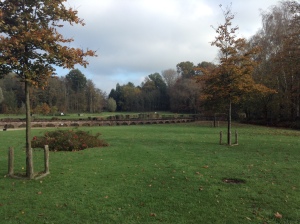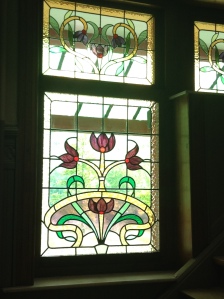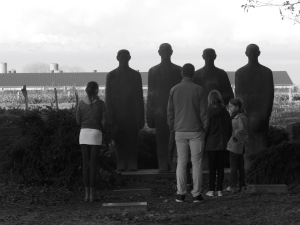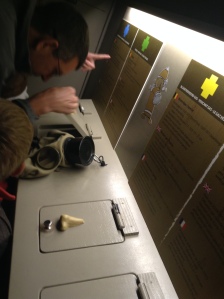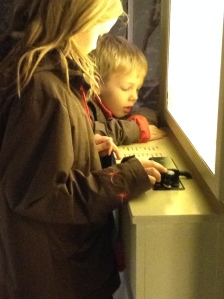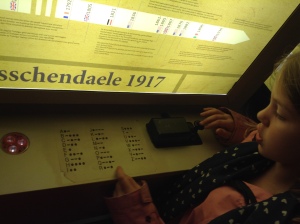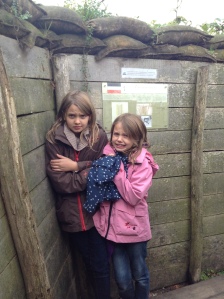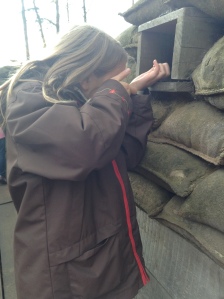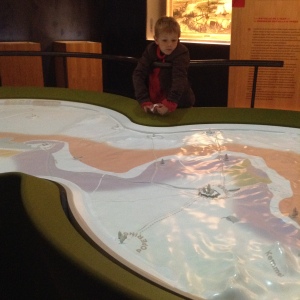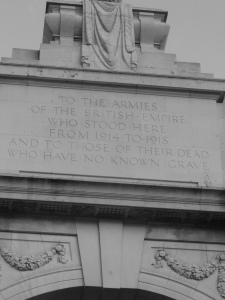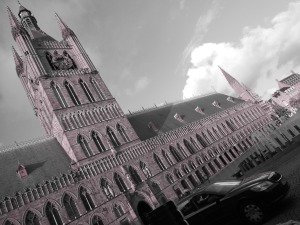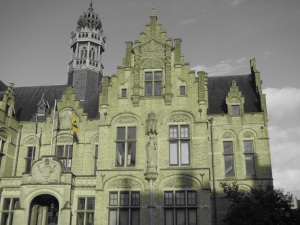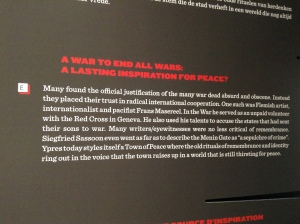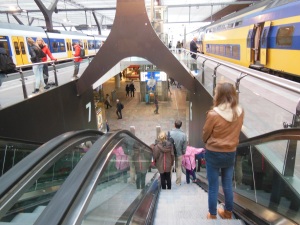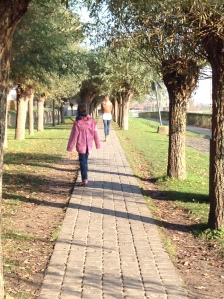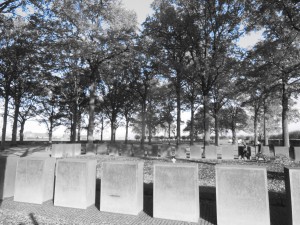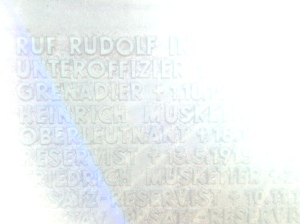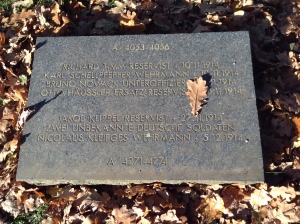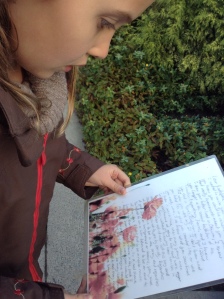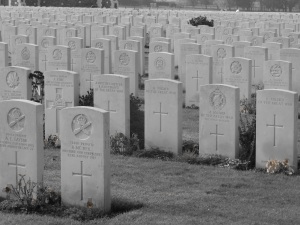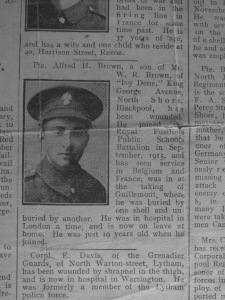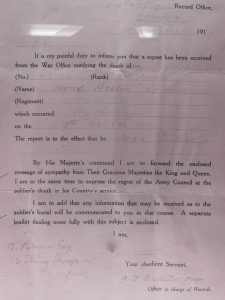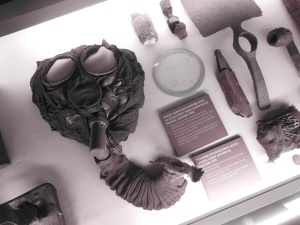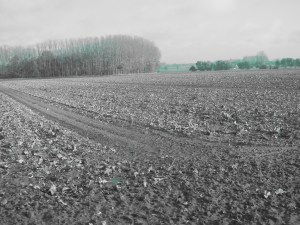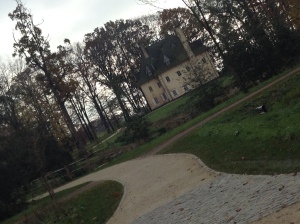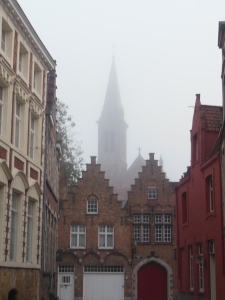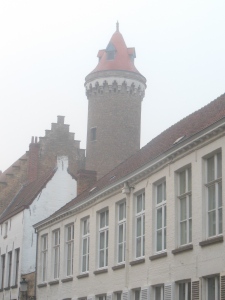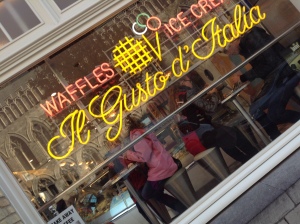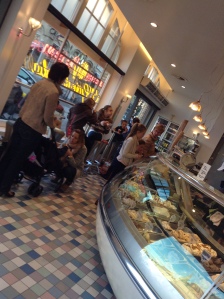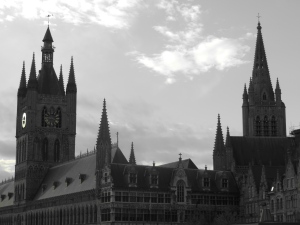This was the most impressive war museum I have encountered, the Passchendaele…
With the underground “communities”, aka sophisticated recreated trench towns, one would think the Allies would be safe, I commented to one of the girls. “Ya, unless there was a bomb. Then the whole thing would implode”, one daughter cleverly quipped.
There were real people that died, but they weren’t just people on the news, people out of reach. They were neighbours and sons and fathers and husbands. And there were weekly pronouncements of the death of them all over the world. Imagine the collective stories, the horrible, aching, depressed stories from trenches and destroyed villages and bombed cities—I’d think that would overwhelm, but I know that the human spirit has a will to overcome and good can come still.
We had a whiff of the fragrances that gassed many army personnel, both the ones intended to receive them, and the ones that sent them. That’s what happens when the wind changes direction. Are they safe in small concentration? I hope so.
A costume that looks awful similar to that on the news.
 (No, this is not Jim suited up and we weren’t packing one on our way to Ghana).
(No, this is not Jim suited up and we weren’t packing one on our way to Ghana).
Naturally, ammunition…
The somber military personnel…
And the not-so-somber…
Many allied countries fought at Passchendaele. I was entranced with the glory of the Canadian board and the Canadian contribution.
The kids learning SOS and their names in Morse Code…
The happy soldier…
Imagine how cold the trenches were… Cold, damp north coastal weather, no dryers to tumble dry the clothes, no open air laundry lines to dry the wool socks.
I had no idea how many trenches veined their way through Western Europe, till I watched a documentary of something on Netflix. Entire community networks, both Allied and Axis, attempted to divert aerial research in military strategy. On ground, the trenches would have been uncomfortable homes. There were underground bunks, public hallway toilets, a kitchen, even a metalworks room–all attached by underground hallways.
Looks an awful lot like classic African fare. It was what they ate regularly in the trenches…
We would finish our afternoon at the Flanders’s Field museum, where we’d be museumed up for a good long time. There is just so much World War 1 history that one can jam into one day.
Zach studied the military maneuvers as the lights flashed from one of the geographic zones to the next, indicating ammunition set at precise times against a digital clock. Incredible accounting of history. Jim had a Twitter feed of each day in history reflecting the events of World War 2. There’s no end to reliving those horrific times.
And for all those Canadians who’ve memorized ‘Flanders’s Fields’: we stopped at the site of John McCrae’s penning of the famous poem. It was situated just outside the military hospital where his friend was said to have died.
The tour guide asked my daughter if we had to memorize this poem in our Canadian school. She looked at me and smiled. Nope. And I grabbed my iPod to write it down in Notes: memorize Flanders’s Fields! A roll of the eyes from my girl, and an amused snicker on the tour guide’s face.
The Menin Gate where World War 1 troops passed through on their way from Ypres to the battlefields, many to their deaths.
We had a chance to get some Belgian beer with our lunch, visited the Flanders’s Field museum and stopped for a Belgian waffle with Europe’s most famous topping, giant tubs of Nutella, and saw the magnificently recreated Ypres. Every 1500-built building in town was flattened. Not a home standing. Cloth was sent by sea and recreated as in the old days. I certainly wouldn’t know the difference, but the neighbouring city of Bruges suggests this is Disneyland for Belgium, because not a lick of the town is original.
In hopes that we’ll never see a Third World War, the final statement in this significant museum…
I walked down the Flanders’s Fields exit stairs, swathed in light, emotionally illuminated by the remembrances of tragedy, trauma, hard-fought and hard-won military victories at the expense of millions of people’s happy homes.
Each may have lived one story, but many heartaches. The museum spoke of endless gut-sickening stories: woven together, they represent unspeakable, overwhelming awfulness that should never be repeated. But it was. World War 2, only twenty years later.
The League of Nations, the United Nations, American military endeavors around the world–no matter what attempts there may be to gain people’s freedom and safety, there is only one way.
This war wasn’t just the embodiment of suffering. It had a purpose. Of peace. Which the world will never claim entirely. Peace is earned in the individual heart, and awful hard to maintain, a gift from God, learned through great difficulty many days. But strive toward it, we each can choose.
Let there be peace on earth, and let it begin with me…
